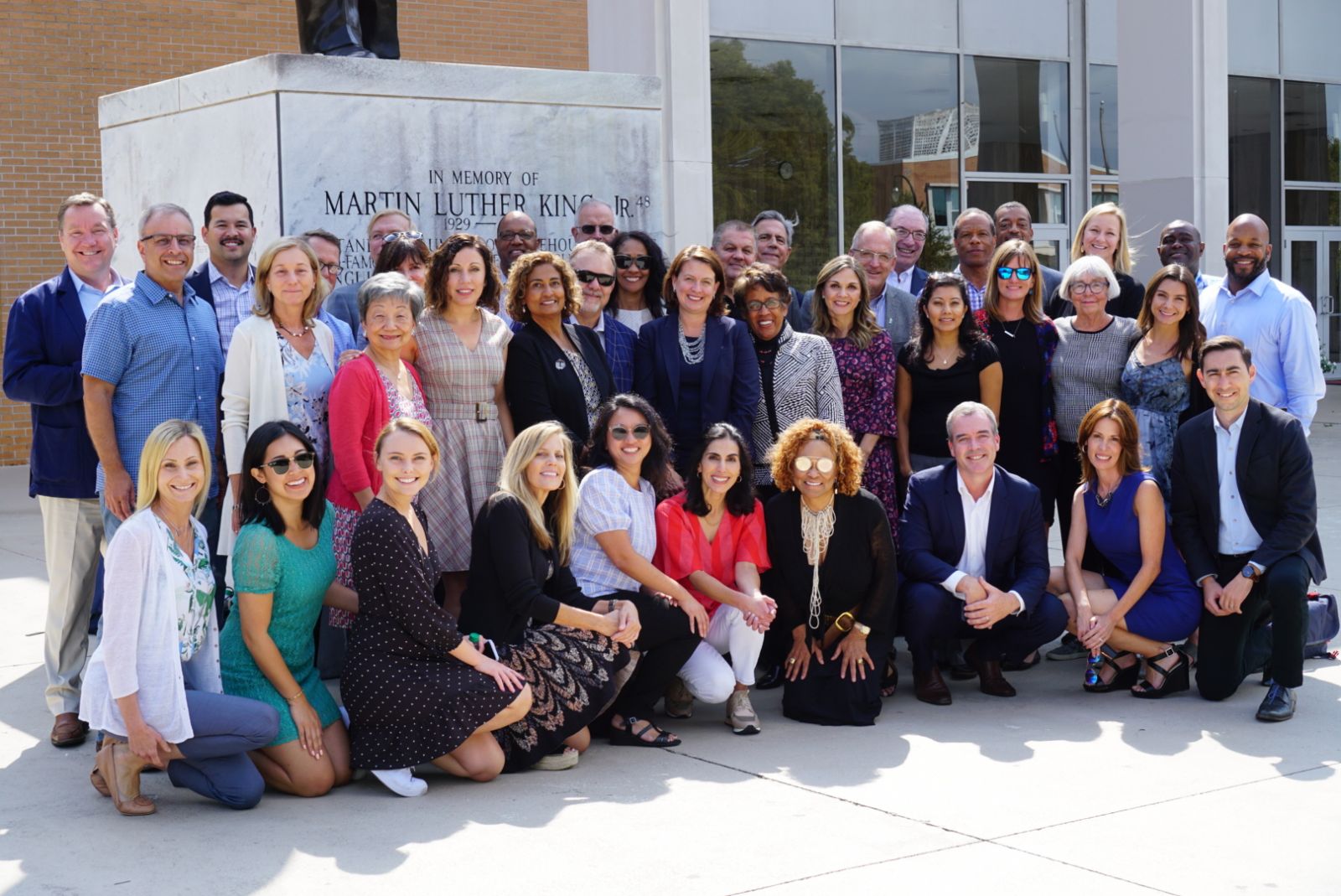As a way to inspire new approaches to inclusive economic development, EDC organizes an annual leadership trip with its partners and stakeholders in a peer region facing similar challenges. This year, EDC led a delegation of more than 40 San Diegans to Atlanta, Georgia – a city with deep cultural and historical significance. After three full days of dialogue with some of Atlanta’s most progressive and impactful leaders, our group came home with three main takeaways.
1. The decisions we make today will have lasting impacts on future generations.
We started off the leadership trip the way EDC approaches everything we do: with research. We learned how Atlanta’s history of racial inequity directly impacted the way the city was developed. It affected where public transportation would run, where good schools were built, who received loans to buy a house or start new businesses, and much more. Rohit Malhotra of Center of Civic Innovation stated, “96% of people born poor in Atlanta will die poor in Atlanta.” The disparities facing Atlantans today are deeply rooted in the region’s history. And because it’s leaders are willing to take a honest look at that history, that they are able to bring about lasting change. This inspired thoughtful discussion on how San Diego’s own history has shaped the way our communities live today, and will hopefully lead to further investigation into our region’s past, so that we can create sustainable solutions for our future.
2. Transportation can either exacerbate or alleviate existing problems.
Perhaps the biggest historic factor inhibiting Atlantan’s economic prosperity is access to transportation. Because the city was designed to separate black and white populations, many low-income areas of the region simply do not have access to good jobs and affordable housing. In reference to predicting economic and health outcomes for Atlantans, Carol Naughton of Purpose Built Communities shared that “zip code impacts more than genetic code.” To combat this, organizations like Purpose Built Communities, TransFormation Alliance, and Historic District Development Corporation formed and work together to create an infrastructure that will support healthy, sustainable, and affordable communities. Thanks to their support and a transformational vision for redevelopment by Ryan Gravel, the Atlanta BeltLine was created to connect disparate neighborhoods and is drastically changing the way people live. That kind of positive peer pressure is what is bringing about change unlike anything the city of Atlanta has ever seen before. People who were previously displaced from quality jobs and access to transportation can now walk or bike to the grocery store to buy healthy food for their families. They can walk to a quality job that pays enough to support themselves. The thoughtful collaboration between these entities shows us that this level of systems change is, in fact, possible when organizations work together to take action.
3. It’s critical for younger generations to see themselves in leadership roles.
Inside the historic International Martin Luther King Jr. Chapel at Morehouse College, we heard about the importance of talent development investments from members of the Atlanta University Center Consortium. As Spellman College President Mary Schmidt Campbell eloquently said, “when students are affirmed, they do better.” Organizations like Cristo Rey Atlanta High School, a private school for underserved students who don’t pay tuition, help students and their families with hands-on college preparation, like the college application process. Interim President Camille Naughton said, “It’s barriers like filling out a FAFSA application that keeps students out of college – not intellect or lack of desire.” Clearly, the education systems in Atlanta understand that a bright future in Atlanta largely depends on significant investment in its students today. We also heard from Brookings Institution Fellow Rodney Sampson, who co-founded the Opportunity Hub (OHUBS) to eliminate barriers for minority tech founders. Rodney believes that building an inclusive economic ecosystem starts with early exposure to innovation and socialization. He said, “When you’re exposed to innovative ecosystems, the trajectory of your ability to acquire wealth changes.” Through organizations like these, students and young entrepreneurs see that they’re worth investing in. They see themselves as a leader, who can take action and make an impact.
From hearing about innovative talent development strategies and inclusive entrepreneurial ecosystems at Morehouse College, to walking along the Atlanta BeltLine that is radically changing the connectivity of Atlantas’s neighborhoods, our group gained invaluable insights that spurred thoughtful conversations about creating a better San Diego that works for all. The transformation in Atlanta was palpable. After immersing ourselves in its rich history and hearing first-hand experiences from Atlanta’s civic, education, and business leaders, one thing is clear: our inclusive growth work in San Diego is far from over, but we’re on the right path.

This trip was made possible through generous support from Southwest Airlines and Cox Communications.
To learn more about EDC’s Inclusive Growth effort, visit inclusiveSD.org or follow along on social media at #inclusiveSD.